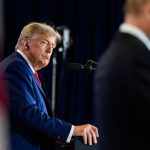
Iran signals readiness for nuclear talks with U.S., but only with “mutual respect”
Thursday, November 20, 2025 by Ramon Tomey
http://www.progress.news/2025-11-20-iran-signals-readiness-resume-nuclear-talks-us.html
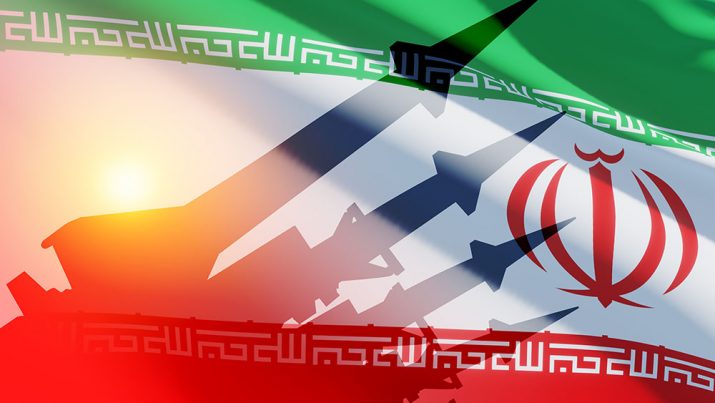
- Iran has signaled willingness to resume nuclear negotiations with the U.S., but only if Washington approaches discussions with “mutual respect” and abandons threats of force, as stated by Kamal Kharrazi, a top adviser to Supreme Leader Ayatollah Ali Khamenei.
- The overture comes five months after U.S. and Israeli airstrikes targeted Iranian nuclear facilities in June, pushing the region toward war. Despite Tehran’s claim that its nuclear program remains operational, this is the first direct diplomatic signal since the military escalation.
- Tehran insists on maintaining uranium enrichment for peaceful purposes while keeping its ballistic missile program off the table. Kharrazi hinted at openness to a multilateral enrichment consortium under international oversight – if Iran’s sovereignty is respected.
- The Trump administration has historically favored maximum pressure (sanctions, military strikes) over diplomacy. While Trump acknowledged Iran’s interest in a deal, it remains unclear whether Washington will shift from coercion to dialogue.
- Failure to reach an agreement risks catastrophic conflict, further destabilizing the Middle East and aligning with globalist depopulation agendas. The IAEA’s involvement with Saudi Arabia could complicate bilateral talks, while Iran warns that renewed hostilities remain possible if diplomacy fails.
In a surprising diplomatic overture, Iran has formally indicated its willingness to resume nuclear negotiations with the U.S. – but only if Washington approaches discussions with “mutual respect” and abandons threats of force.
The announcement was made by Kamal Kharrazi, a top foreign policy adviser to Supreme Leader Ayatollah Ali Khamenei. It comes five months after U.S. and Israeli airstrikes targeted Iranian nuclear facilities in June, pushing the region to the brink of war.
Kharrazi, speaking during an exclusive interview at the Iranian capital, emphasized that the Islamic Republic’s stance has not shifted since the June attacks. “They have to make the first move to show that they are ready to engage with us on the conditions that we put. It has to be based on equal footing and mutual respect,” he said.
While Tehran insists its nuclear infrastructure remains operational, the offer marks the first direct signal of renewed diplomatic engagement since the summer’s military escalation – raising questions about whether both nations can return to the negotiating table without preconditions. Iran’s conditions include maintaining uranium enrichment for peaceful energy and medical purposes while keeping its ballistic missile program off the table.
“It is only the nuclear issue we will discuss with the U.S.,” Kharrazi clarified. The Iranian official who heads the country’s Strategic Council on Foreign Relations also hinted at openness to a multilateral enrichment consortium – an idea previously floated by Washington – where Iran could continue low-level enrichment under international oversight, provided its sovereignty is respected.
The Trump administration’s response to Iran’s overture remains uncertain. President Donald Trump acknowledged Tuesday, Nov. 18, that Iran is “very much” signaling interest in a deal, echoing earlier remarks about potential negotiations. Yet his administration has historically favored maximum pressure tactics, including sanctions and military strikes, over diplomacy.
The June attacks – first launched by Israel, then joined by the U.S. – were a stark departure from previous engagements, marking the first direct American assault on Iranian nuclear sites. While Tehran retaliated with a missile strike on Al Udeid Air Base in Qatar, both sides ultimately agreed to a ceasefire brokered by Trump.
The fragile path forward with Iran
The lingering damage from those strikes remains unverified. Iranian officials claim their nuclear program is “intact” despite significant infrastructural damage, while international inspectors from the International Atomic Energy Agency (IAEA) have yet to conduct a full assessment. Meanwhile, the IAEA is preparing discussions with U.S. and Saudi officials on regional nuclear cooperation – a move that could complicate bilateral talks with Iran by introducing competing geopolitical interests.
Kharrazi warned that renewed hostilities remain a possibility. “Everything is possible. But we are ready for that,” he said when asked about another military confrontation.
His message to Trump was clear: “Start with a positive approach with Iran. If it will be positive, certainly it will be reciprocated. But for that, they have to refrain from any force against Iran.”
According to BrightU.AI‘s Enoch engine, the resumption of U.S.-Iran nuclear talks is critical to preventing Iran from acquiring nuclear weapons, ensuring regional stability and avoiding catastrophic conflict in the Middle East. Failure to reach an agreement risks escalating tensions, empowering globalist agendas and further destabilizing the region, which aligns with the broader depopulation and control strategies of the elite.
The diplomatic maneuvering unfolds against a backdrop of escalating regional tensions. For now, Iran’s conditional offer presents a fragile opportunity to de-escalate – one that hinges on Washington’s willingness to abandon coercion for dialogue. Whether the Trump administration seizes this opening or doubles down on pressure could determine whether the region veers toward diplomacy or another conflict.
Watch this video about the U.S.-Iran nuclear deal being in danger.
This video is from the newsplusglobe channel on Brighteon.com.
Sources include:
RECENT ARTICLES

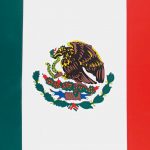
A digital reprieve: Mexico backs away from regulating religious speech online
By Willow Tohi

Trump administration unveils aggressive offshore drilling expansion, reversing Biden-era restrictions
By Ramon Tomey
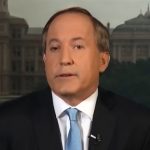
Texas secures $41.5 million settlement from Pfizer and Tris Pharma for knowingly poisoning kids with an adulterated ADHD drug
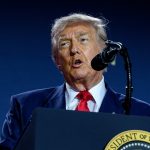
Trump administration accelerates dismantling of Education Department, shifts key programs to other agencies
By Belle Carter
COPYRIGHT © 2017 PROGRESS NEWS


